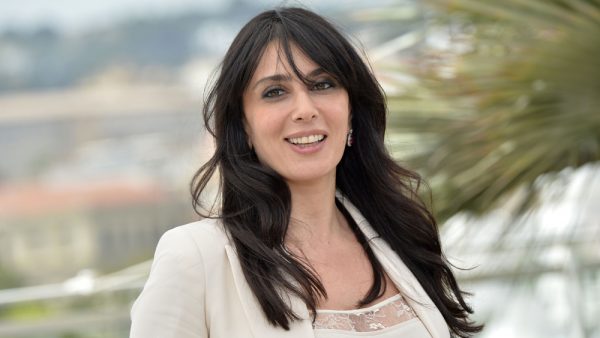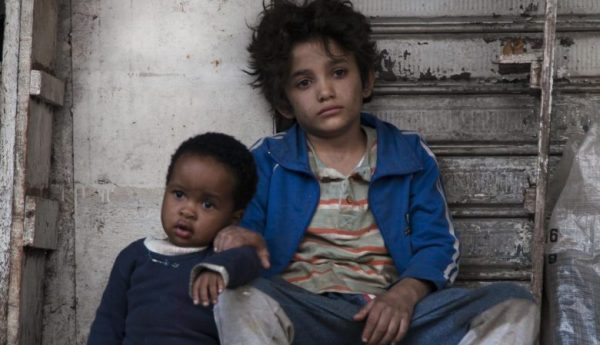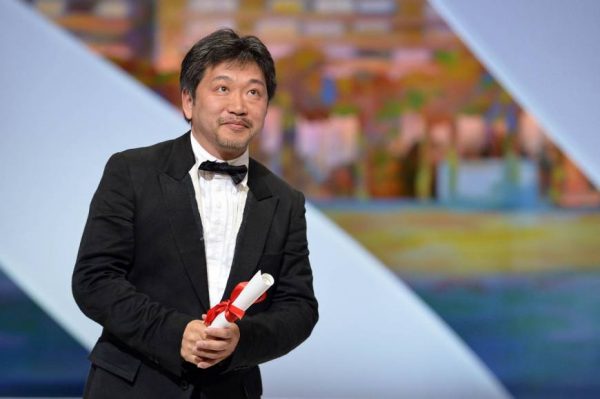Japan’s Hirokazu Kore-eda won a richly deserved Palme d’Or for his moving drama about a makeshift household of petty thieves, while Spike Lee’s “BlacKkKlansman” took the silver-medal “Grand Prix” and Nadine Labaki’s “Capharnaum” settled for third.
As she awarded cinema’s most prestigious prize at the Cannes Film Festival’s closing ceremony on Saturday, jury president Cate Blanchett said the 21 films in competition this year had given voice to the disillusioned, dispossessed and disenfranchised of the world. Her jury’s verdict reflected that endeavour, honouring movies that touched on child abuse, poverty, racism and female resilience.

A Cannes habitué, Kore-eda is known for drawing modest masterpieces from ordinary-life stories. “Shoplifters” is centred on a poor Japanese household that scrapes a living by running petty scams, and in which nothing turns out to be quite what it seems. In the Japanese director’s exquisitely delicate style, it is a deeply moving and deceptively simple drama about the forces that hold families together and tear them apart. Playful and heart-wrenching, this is a gem for both art-house buffs and mainstream audiences.

A more surprising choice, veteran US director and activist Spike Lee picked up the Grand Prix, Cannes’ silver medal, for his uproarious satire “BlacKkKlansman”. Based on the extraordinary true story of a black detective who infiltrated the Ku Klux Klan in the 1970s, it stars John David Washington in the lead role and Adam Driver as a Jewish undercover police officer who poses as the black detective’s “white self”. Both angry and funny, “BlacKkKlansman” is an all-guns-blazing attack on institutional racism and the legacy of the white supremacist Klan, peppered with deliberately unsubtle jabs at US President Donald Trump.

Throughout the festival there had been much speculation as to whether a woman would win the Palme d’Or for only the second time in the festival’s history. This was the first edition since the #MeToo and Time’s Up movements. It saw Blanchett lead an impressive equality march by 82 female film stars and executives on the red carpet – matching the paltry number of female directors who have climbed the famous steps since the festival’s first edition back in 1946 (as opposed to 1,688 men).
Some had pinned their hopes on Lebanon’s Nadine Labaki, whose “Capharnaum” prompted the festival’s longest and loudest standing ovation after its gala premiere. In the end her Beirut-set drama had to settle for the third-place Jury Prize. Earnest and heartfelt, it mined similar themes to Kore-eda’s Palme winner, but without the Japanese director’s subtle touch.
Another rumoured contender for the top prize, Italy’s Alice Rohrwacher took Best Screenplay for her realist-fantasy blend “Happy as Lazzaro”, sharing the award with Iran’s Jafar Panahi and his exquisite “Three Faces”. Panahi, who is officially banned from filming by Iranian authorities, was one of two directors who were unable to attend the festival, along with Russia’s outspoken filmmaker Kirill Serebrennikov. Blanchett opened the closing ceremony with a tribute to their courageous work.
“Three Faces”, centred on an encounter between actresses from three different generations, was one of several films that featured powerful tales of female defiance and resilience. Another was Sergei Dvortsevoy’s harrowing “Ayka”, about the life-or-death decisions a Kyrgyz worker has to make to survive on the streets of Moscow. Kazakh actress Samal Yeslyamova took the best Actress Award for her intense and physically impressive performance in the lead role.
In the men’s category, a typically jubilant Roberto Benigni shouted “Vai Marcello!” as he summoned fellow Italian Marcello Fonte to pick up the Best Actor award for his part in “Dogman”. The diminutive, soft-spoken Fonte was impressive in Matteo Garrone’s brutal drama, about a gentle dog groomer who is dragged into a hellish spiral of crime, punishment and vengeance.
As always, many of the films revolved around tales of conflicted and disappointed love. In his beautiful black-and-white “Cold War”, Poland’s Pawel Pawlikowski gave us a bittersweet romance thwarted by stubborn egos and iron curtains. Some critics thought it was Palme d’Or material, but the jury opted for the prestigious Best Director award.
On this anniversary year of the May 68 protests in France, film legend Jean-Luc Godard – who famously helped scupper the festival 50 years ago – won a “special” Palme d’Or for his latest cinematic essay, “The Image Book”. A collage of bleached out and brutally cut fragments from film, painting, newsreels and even propaganda videos, his challenging but rewarding film touched on violence, the Arab world, and our culpability as passive mass consumers of images – and was naturally a darling of the critics.
As is often the case in Cannes, the critics’ favourite film – South Korean director Lee Chang-dong’s marvellous “Burning” – left empty-handed, as did another darling of the press, “Ash Is Purest White” by China’s Jia Zhangke. The wait goes on for Jia’s marvellous wife and muse Zhao Tao, who was once again snubbed for the actress award.
Overall, Asian films were the highlight of a rich and diverse offering that justified Cannes’ decision to opt for a mix of veteran auteurs and fresh faces. Festival organisers have long been accused of running an old boys’ club, but there were no such complaints this year. The downside of this bold selection was a dearth of stardust on the red carpet, with Hollywood studios again shunning the Croisette in what is surely an alarming trend for the world’s premiere film festival.


Leave a Reply
You must be logged in to post a comment.